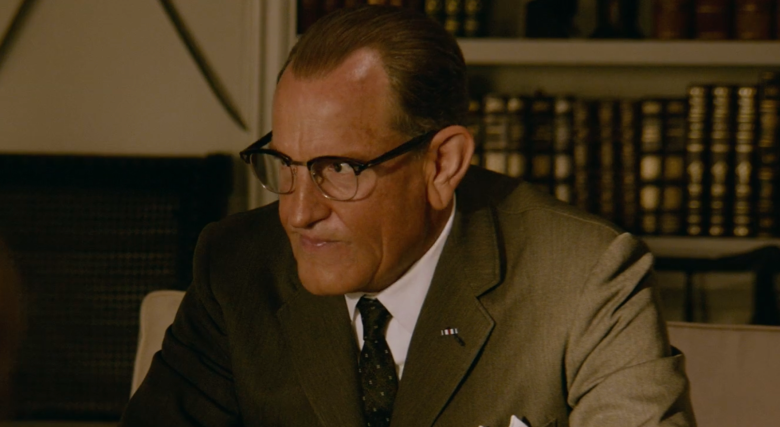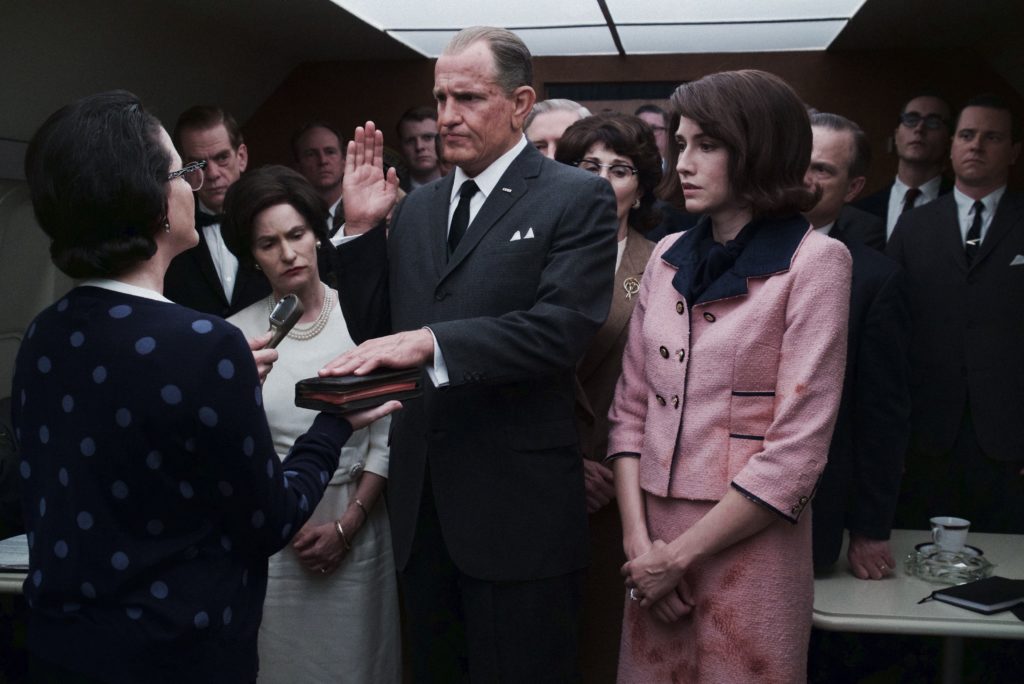
Woody Harrelson captures the essence of Lyndon B. Johnson in Rob Reiner’s LBJ. The best thing about this movie is the main character – probably the most complex and self-contradictory in American history.
LBJ was amazingly talented, aspirational, mean, charming, vulgar and surprisingly needy. LBJ was so masterful and tough and powerful, yet extremely thin-skinned for a politician. His eternal grasping seems rooted in personal desperation. LBJ had the need to dominate others and get everything he wants all of the time, and still needed to be loved (which is impossible when you are running over everyone else).
With all of his personal flaws, no American Presidents (except maybe Lincoln and FDR) have been able to roll up a record of legislative accomplishments in two short years to match the Civil Rights Act of 1964, the Voting Rights Act of 1965, Medicare, Medicaid, and Head Start. Yes, this was a guy who was able to end legal racial segregation and systemic repression of voting rights and to bring medical security to the elderly and the poor. (And then be capable of an equally huge policy mistake – the escalation of the Vietnam War.)
How do you tell the story of a larger-than-life character in only 90 minutes? LBJ focuses on an eight-year period of LBJ’s career. We first see him in 1956 as Senate Majority Leader, at his most energetic, masterful and powerful. We then see him in his period of frustration and weakness as Vice-President. The JFK assassination makes him President, and the film concludes after the enactment of Civil Rights Act in June 1964.
LBJ shows us the many sides of LBJ by tracing three of his personal relationships:
- Georgia Senator Richard Russell (Richard Jenkins), the leader of Southern segregationists and one of LBJ’s most important mentors. LBJ rose to power with Russell’s guidance and loyalty, but LBJ, to find his own place in history, needed to destroy everything Russell stood for.
- Lady Bird Johnson (a superb Jennifer Jason Leigh), the only person who could handle the vulnerable, needy, whiny, disconsolate LBJ.
- LBJ’s nemesis Robert F. Kennedy (Michael Stahl-David). Because RFK was a martyr, the public tends to forget about his nasty and “ruthless” side, which did exist. LBJ and RFK took an instant dislike to each other in the early 1950s, a situation which built into a profound and fundamental mutual hatred.
- Bill Pullman plays Senator Ralph Yarborough, a very minor character in history, but one who serves here as a composite for liberal politicians and for those bullied by LBJ.
The highlights of LBJ are found in that fateful week in November 1963. At Dallas’ Love Field, it’s clear that JFK’s star power has eclipsed the weakened and resentful LBJ even in Texas. Then we see LBJ just after the assassination, taking command and plunging into action, taking command and knowing exactly what to do when everyone else was paralyzed by shock.
The history in LBJ is very sound. I’ve read and re-read the over three thousand pages of Robert Caro’s four-volume biography of Johnson. Much of LBJ’s dialogue is word-for-word historically correct; I’ve even heard the real LBJ himself utter these words on phone calls that he taped himself.
Woody Harrelson is excellent, capturing both the human tornado and the vulnerable sides of LBJ. The fine actors Randy Quaid, Rip Torn, Michael Gambon, James Cromwell, Liev Schreiber and Tom Wilkinson have all had their cracks at playing LBJ on the screen. Woody is significantly better than all of those guys, but I still prefer Bryan Cranston’s LBJ in All the Way.
Yes, it’s a Cliff Notes version, but LBJ, with its top rate performances by Woody Harrelson and Jennifer Jason Leigh, is a fine historical introduction and pretty entertaining, too.


